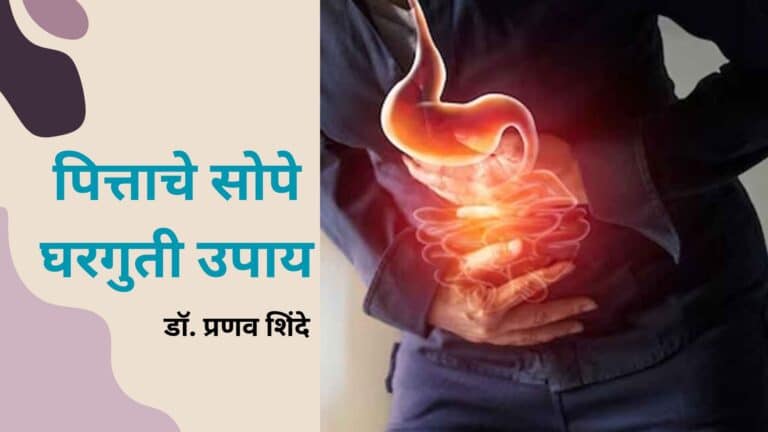Effective Home Remedies for Pitta| पित्ताचे सोपे घरगुती उपाय| (2024)
Home Remedies for Pitta सध्याच्या काळात बदललेले राहणीमान, कामाचे ताणताणाव, बाहेरचे खाण्याचे वाढलेले प्रमाण, sedentary lifestyle, technology मुळे कमी झालेली शरीराची हालचाल, रात्री उशिरापर्यंत मोबाईलवर scroll करत बसने इत्यादी सर्व कारणाने पित्ताचा त्रास हा प्रत्येकच घरात पाहायला मिळतो. म्हणून या लेखात आपण पित्ताचे सोपे घरगुती उपाय (Home Remedies for Pitta) पाहणार आहोत, ज्यांचा रोजच्या आयुष्यात …






